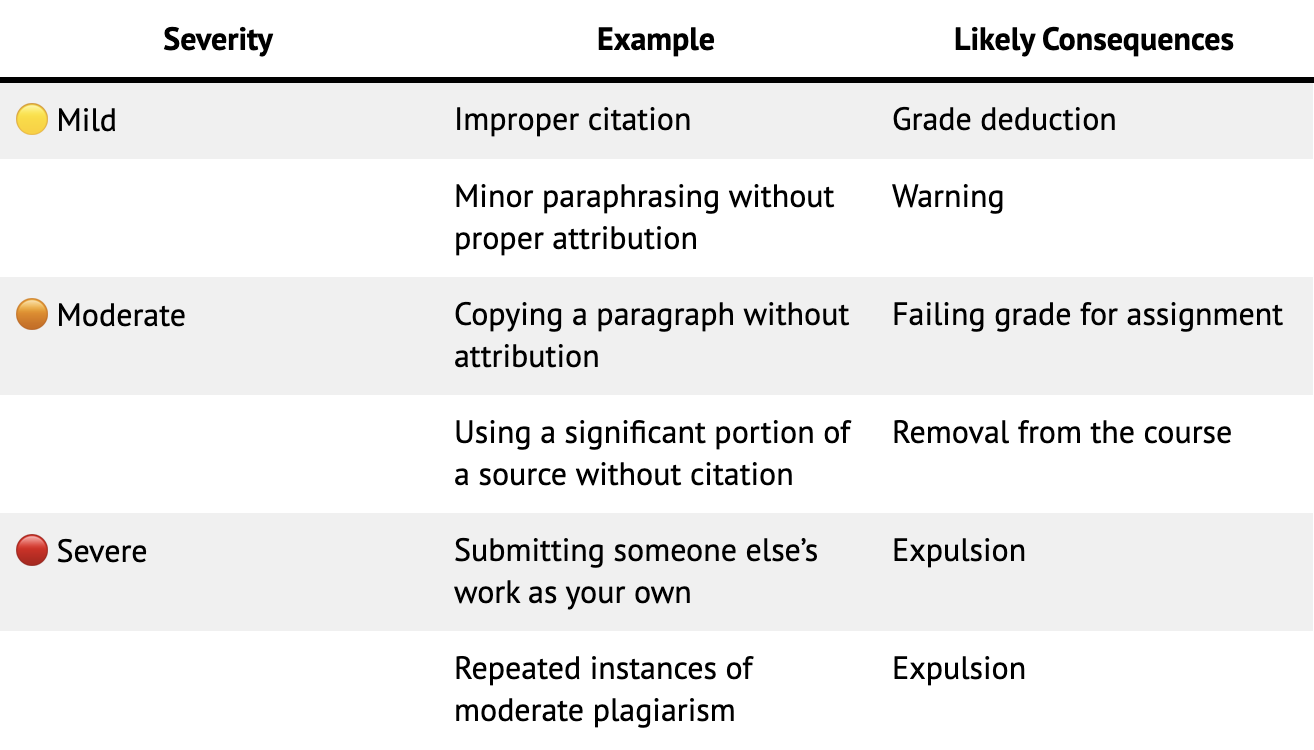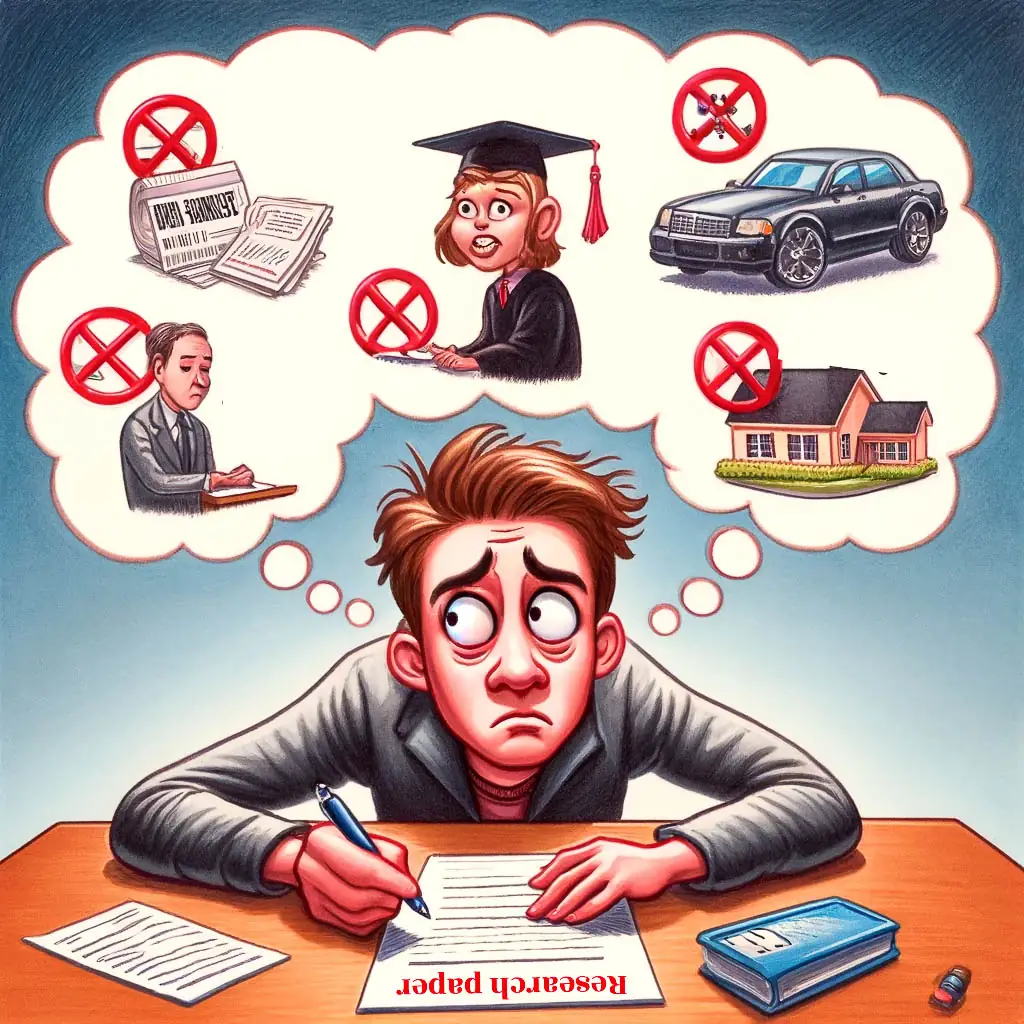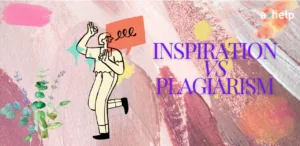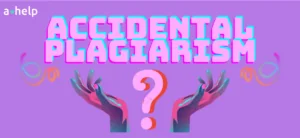Plagiarism is the act of using someone else’s work or ideas without proper attribution, presenting them as your own. It is a serious offense in academic settings, prevalent in colleges and universities worldwide. Plagiarism undermines the integrity of education, devaluing the hard work of honest students and scholars. In college, the consequences of plagiarism can be severe, ranging from failing grades to expulsion. Students have to understand the ways to avoid plagiarism in academic writing and finally start following the ethical standards in their academic pursuits.

✅ AI Essay Writer ✅ AI Detector ✅ Plagchecker ✅ Paraphraser
✅ Summarizer ✅ Citation Generator
The Consequences of Getting Caught Plagiarizing
The consequences of plagiarism vary based on the severity of the offense. Mild plagiarism might include minor instances of improper citation or paraphrasing, with consequences such as a warning or a deduction in the grade for the assignment. Moderate plagiarism is more significant, such as copying a paragraph or several sentences without attribution, which could result in a failing grade for the assignment or the course. Severe plagiarism includes copying an entire paper, submitting someone else’s work as your own, or repeated offenses, with consequences as severe as expulsion from the institution.

The Long-Term Impacts of Plagiarism on Academic and Professional Careers


In the professional world, a history of plagiarism can hinder career growth and lead to legal consequences in certain industries. It’s crucial for students to understand the importance of academic integrity and the potential long-term consequences of plagiarism on their future success.
Tips for Avoiding Plagiarism
To avoid plagiarism, it’s crucial to understand what it entails. Plagiarism is not just about copying text verbatim; it also includes using someone’s ideas or concepts without proper acknowledgment. Being aware of the different forms of plagiarism can help you steer clear of it in your academic work.
For instance, if you’re writing a paper and come across a compelling study by Dr. Smith on the effects of deforestation on biodiversity, it’s not sufficient to simply rephrase Dr. Smith’s findings. You must explicitly cite the study in your paper, indicating that the ideas and data you’re discussing originated from Dr. Smith’s research. This ensures that you’re giving proper credit and maintaining academic integrity.
One important tip is to cite your sources correctly. Whenever you refer to information from another source, whether it’s a direct quote, a paraphrase, or statistical data, make sure to cite it according to the required citation style. This gives credit to the original authors and distinguishes their work from your own.
If you’re writing a research paper and use a statistic from a study by Johnson et al. (2020) that states “50% of urban areas have seen a decline in green spaces over the last decade,” you should cite this source in your paper. Depending on the citation style, it might look like this in APA format: (Johnson et al., 2020). This citation acknowledges that the statistic came from Johnson and colleagues’ research, not your own original finding.
When using direct quotes from a source, always enclose them in quotation marks. This clearly indicates which words are taken directly from the source and which are your own. It’s a simple yet effective way to avoid plagiarism.
If you’re writing an essay and want to include a quote from a book that says, “The only impossible journey is the one you never begin,” you should put it in quotation marks like this: “The only impossible journey is the one you never begin” (Author, Year). This shows that these are not your original words but are taken directly from the source.
Paraphrasing is a useful technique, but it must be done properly. When you rephrase, you should completely rewrite the information in your own words and style. Merely changing a few words here and there is not sufficient to avoid plagiarism.
If the original text states, “Global warming is a significant threat to marine biodiversity, causing coral bleaching and altering fish migration patterns,” a proper paraphrase might be, “The rise in global temperatures poses a serious risk to ocean life, leading to the whitening of corals and changes in the movement of fish species.” This rephrasing maintains the original meaning but uses different words and structure.
Lastly, keep track of all the sources you use during your research. Recording the details of each source will make it easier to cite them accurately in your work. This organized approach can prevent accidental plagiarism, so you won’t be googling “check my paper for plagiarism” the last minute before the deadline.
Here are two examples of an citing your resources:
❌ The Bad Way
✅ The Proper Way
- Some guy named John wrote about fish and stuff in a journal, I think it was in 2020.
- I read an article by Mary and Alex about green energy in cities, but I don’t remember where or when.
- There was this paper by someone named Davis on how Instagram affects teens, but I can’t recall the details.
- Smith, J. (2020). The Impact of Climate Change on Marine Life. Oceanic Studies Journal, 15(3), 245-260.
- Johnson, M., & Lee, A. (2019). Renewable Energy Solutions for Urban Areas. Environmental Innovations, 7(2), 134-145.
- Davis, K. (2018). The Psychological Effects of Social Media on Teenagers. Adolescent Research Review, 12(4), 321-335.
Plagiarism in college is a serious matter with significant consequences. It can lead to penalties such as failing grades, suspension, or even expulsion. Upholding academic integrity is crucial for maintaining the credibility of your work and the institution’s reputation. If you’re ever unsure about how to properly cite or reference sources, don’t hesitate to seek assistance. Many colleges offer resources such as writing centers or online guides to help you navigate citation practices. Remember, it’s always better to ask for help than to risk the repercussions of plagiarism.
FAQ
Follow us on Reddit for more insights and updates.





Comments (0)
Welcome to A*Help comments!
We’re all about debate and discussion at A*Help.
We value the diverse opinions of users, so you may find points of view that you don’t agree with. And that’s cool. However, there are certain things we’re not OK with: attempts to manipulate our data in any way, for example, or the posting of discriminative, offensive, hateful, or disparaging material.